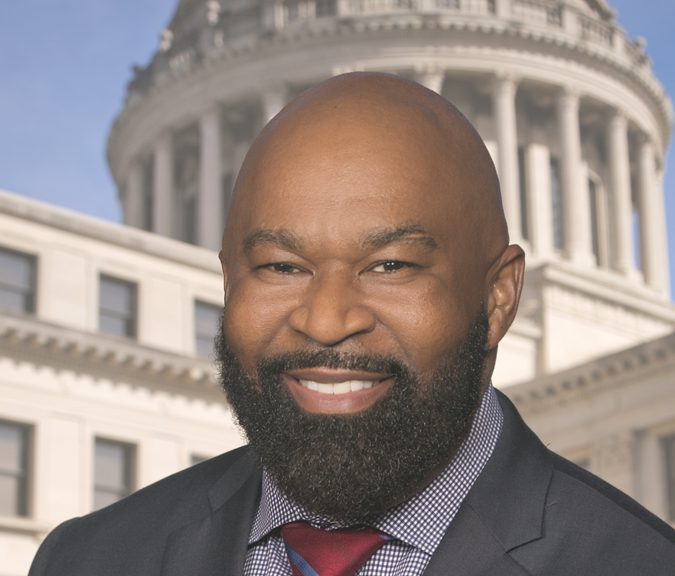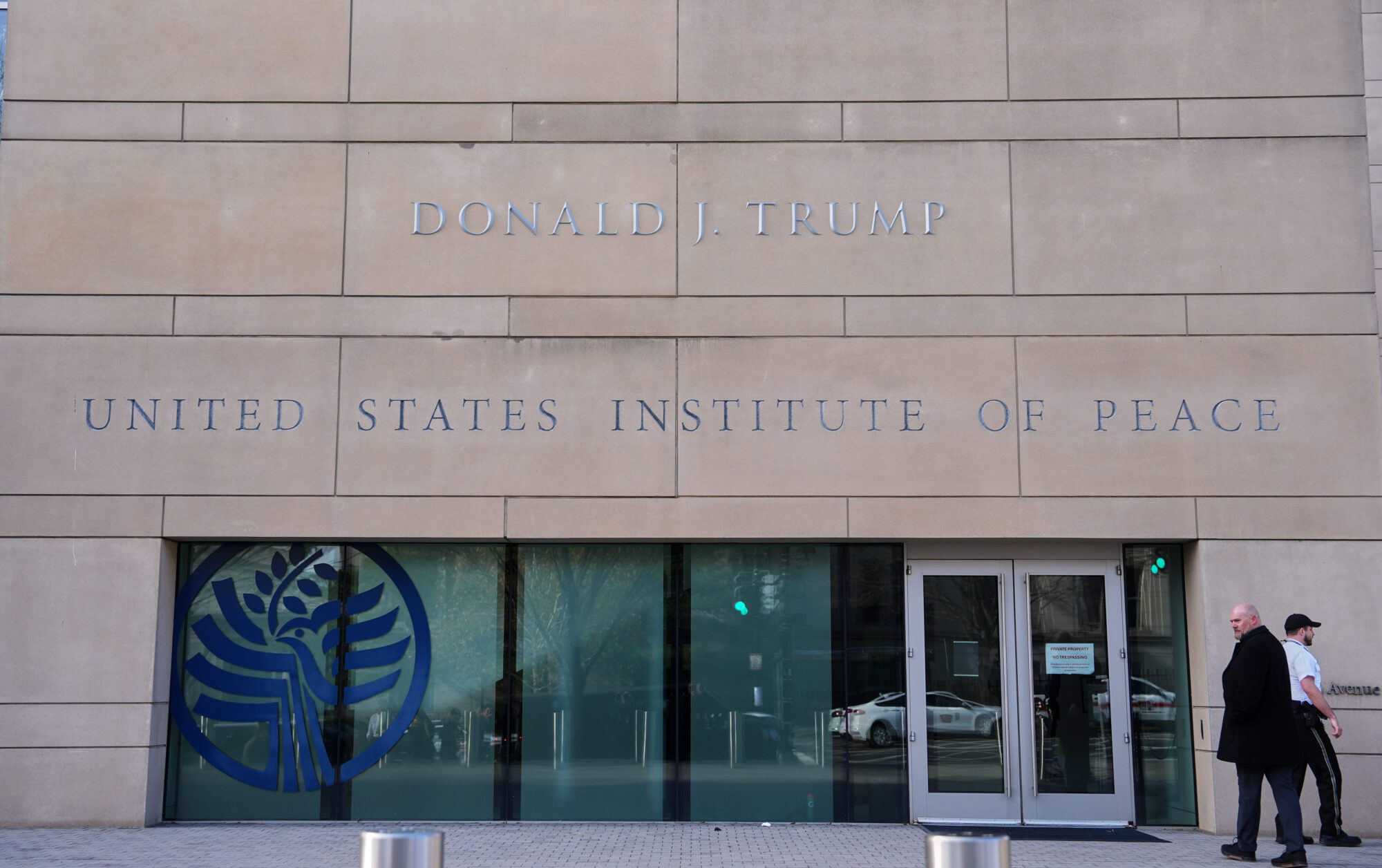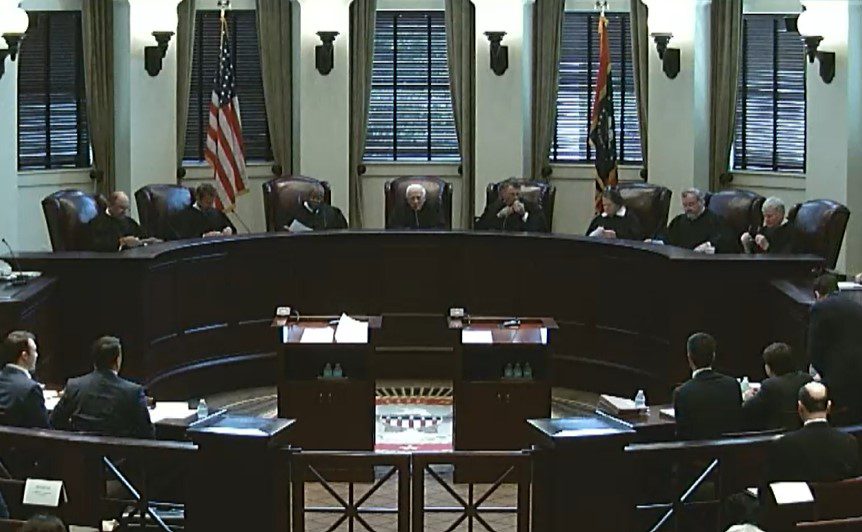
Mississippi Supreme Court
The appellants argue that the Legislature went too far in enacting the law that provides temporary judges in Jackson aimed at reducing backlogs. The State contends that such policymaking should be left to lawmakers.
A lawsuit filed by three Jackson residents which was dismissed in May made its way to the Mississippi Supreme Court on appeal Thursday morning. Appellants Ann Saunders, Sabreen Sharrief, and Dorothy Triplett believe the new law passed by the Mississippi Legislature known as House Bill 1020 impedes on their rights as Jackson residents.
House Bill 1020 allows for the Mississippi Supreme Court Chief Justice to appoint four temporary judges while expanding the Capitol Complex Improvement District (CCID) and the jurisdiction of the Capitol Police.
In mid-May, Judge Dewayne Thomas denied the appellants’ motion for a preliminary injunction and granted the Attorney General’s motion to dismiss the complaint, saying then that the plaintiffs failed to state a claim upon which relief could be granted. Prior to the dismissal of the case, Judge Thomas dismissed both Chief Justice Michael Randolph and Circuit Clerk Zack Wallace from being named as defendants in the lawsuit.
Ahead of today’s hearing before the state Supreme Court, Chief Justice Randolph recused himself. Randolph has said that he has no opinion of House Bill 1020 and was neutral as to its constitutionality but would enforce the law if it stands. In his recusal, the Chief Justice said the Mississippi Supreme Court must be shielded from unnecessary criticisms “that would surely result” if he delayed the proceedings.
READ MORE: Chief Justice Randolph recuses himself ahead of Supreme Court hearing in HB 1020 case
Presiding Justice James Kitchens oversaw the day’s proceedings in Chief Justice Randolph’s absence.
The attempt to overturn the dismissal from Judge Thomas and revive the case on appeal to the state Supreme Court was led by the appellants’ attorney Cliff Johnson of the MacArthur Justice Center. Johnson opened his arguments before the justices by saying the Mississippi Constitution forbids the judicial appointments outlined by House Bill 1020.
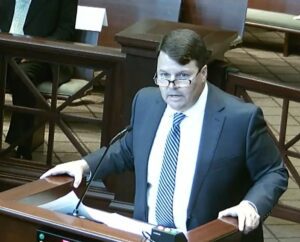
“Section 153 provides no authority to any state official to expand any circuit court for any reason through the appointment of new judges,” Johnson said.
Johnson said there were legally permissible ways for the Legislature to provide assistance to courts that need it but in House Bill 1020 the “Legislature has gone too far.”
In questioning Johnson, Associate Justice James Maxwell
“The Legislature has recognized and has enacted statutes for over 30 years that has allowed the temporary appointment of circuit judges, special judges, temporary special judges for emergency situations. And every court that has looked at those statutes has said that it looks like it’s OK,” Maxwell said. “The Court of Appeals has said that. A three-judge federal panel on a Voting Rights Act case 30 years ago looking at said it looks like it’s OK.”
Johnson argued that the case referenced by Justice Maxwell was not in the same context as House Bill 1020. The attorney also argued that appointing judges “in the place of” is different than “in addition to,” a distinction which Johnson says should be made when considering the relevant statutes and House Bill 1020’s provisions.
Johnson said the Legislature has options other than what was done with House Bill 1020, specifically adding permanent elected judges.
“There are options available that are appropriate, legally permissible, and the question before this Court isn’t whether we should provide assistance. Of course, we should, where we can,” Johnson told the justices. “The question is whether HB 1020 using the hammer of this court-packing, mandatory, 42-month appointment and 91-1052 with its adding additional judges are appropriate tools among the many options available to the Court.”
Justice Maxwell again addressed the appellants’ counsel, saying, “You’d agree, Mr. Johnson. We can’t just say, ‘We don’t like this, so we’ve got to rule that this statute creating these two courts is unconstitutional.'”
“Just so everybody’s on the same page here, our burden, the way that we look at it under Mississippi law is that we have to strongly presume that this duly enacted legislation is valid. I didn’t make up that rule. Justice Kitchens didn’t make up that rule. That’s been here long before anybody in this courtroom got here. That’s how we view statutes,” Justice Maxwell told Johnson. “And your job as somebody trying to throw out the statute, and you would admit it, it’s a tougher burden. It’s not like a civil case where you just show more likely than not, not even like a child custody case where you’re taking away someone’s child, and you prove clear and convincing evidence. You have to come in here and show everybody on this Court that the Legislature got it wrong beyond a reasonable doubt.”
Johnson responded that he is comfortable that the Court need not engage in “any policymaking” to find House Bill 1020 errant and provide options that better comport with the state constitution.
Scott Stewart, Solicitor General in the Attorney General’s Office, then argued on behalf of the State, the Governor and the Attorney General. Stewart opened by saying the lower court was right in upholding the appointments in the case in its dismissal.
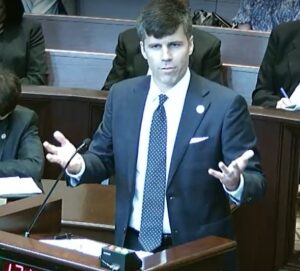
“I think the core constitutional question before this Court is whether the Legislature may equip the courts of our state with the tools needed for the administration of criminal justice. That’s the core question. I think the answer has to be yes,” Stewart said.
Stewart said nothing the Mississippi Constitution strips the Legislature of that power, noting that challenges to the enabling statutes that allow the appointment of temporary judges have been rejected in state and federal court.
“The notion that this is a ‘beyond the reasonable doubt’ constitutional violation, a violation of the clear text really flies in the face of the fact that we’ve had these [statutes] around a long time. We’ve had many people with incentives to challenge these laws and we just haven’t seen it,” Stewart told the Court countering Johnson.
Justice Kitchens took particular issue with the name of the temporary judges, whether special judges or special circuit judges. Stewart argued that the temporary judges are special judges that are acting for the benefit of the court without a tenure protected term.
Stewart said the case boils down to a policy disagreement over how the Legislature chose to act.
“That’s surely not a constitutional problem, especially when you view it through the reasonable doubt standard,” Stewart said.
Mark Nelson, representing Chief Justice Randolph, then appeared before the Court arguing for judicial immunity as allowed by the lower court’s actions.
Nelson told the justices that judicial immunity bars this lawsuit against the Chief Justice.
“His only interest in this litigation, and his charge to me as his counsel and to my colleague as his counsel, is to protect the office, to protect this institution,” Nelson said of Randolph.
Justices did not ask Nelson any questions.
After a rebuttal by Johson on behalf of the appellants restating their position, Justice Kitchens concluded the proceedings, noting that the Court would take the matter under advisement and would render a decision in due course.
You can watch the day’s proceedings here.





